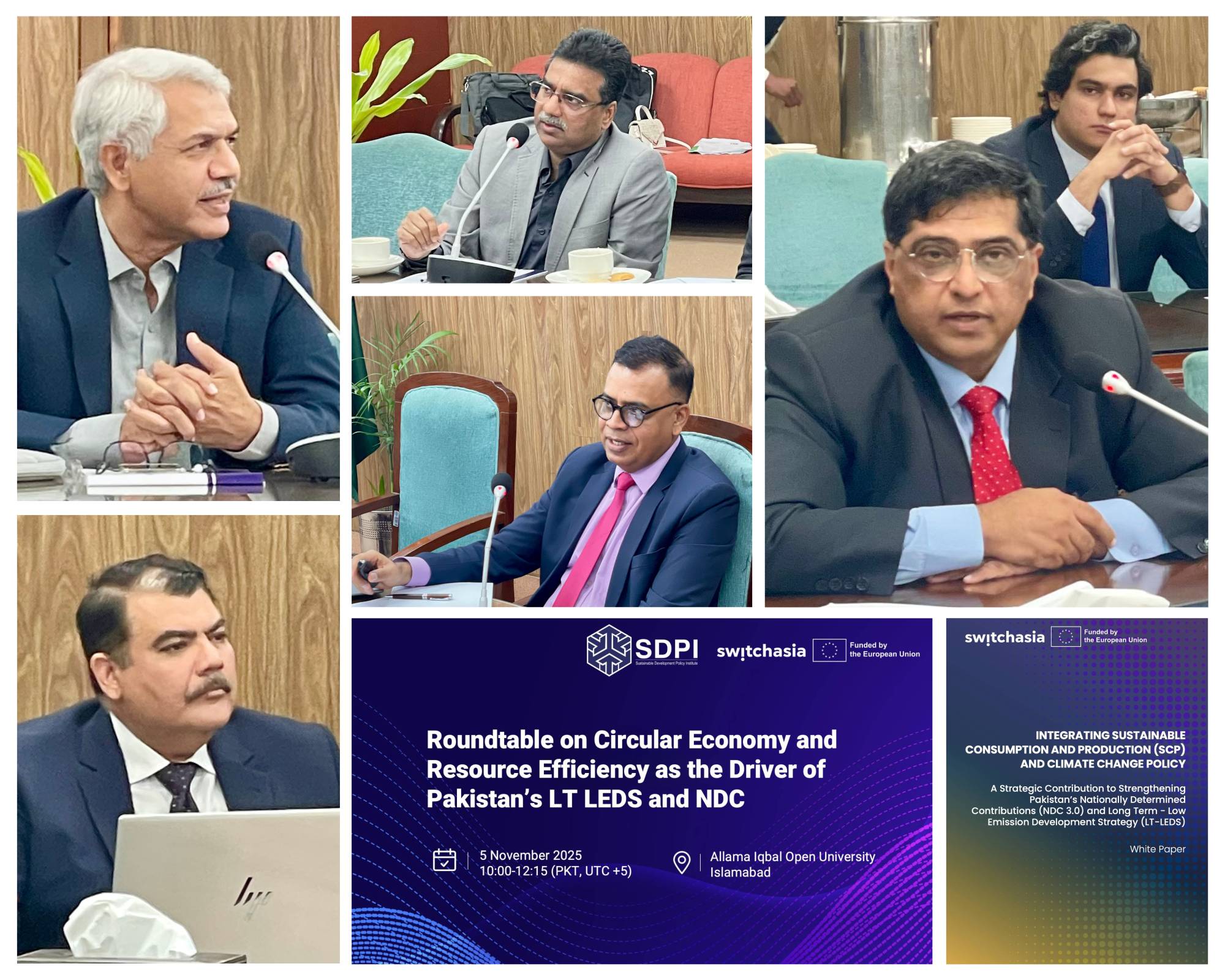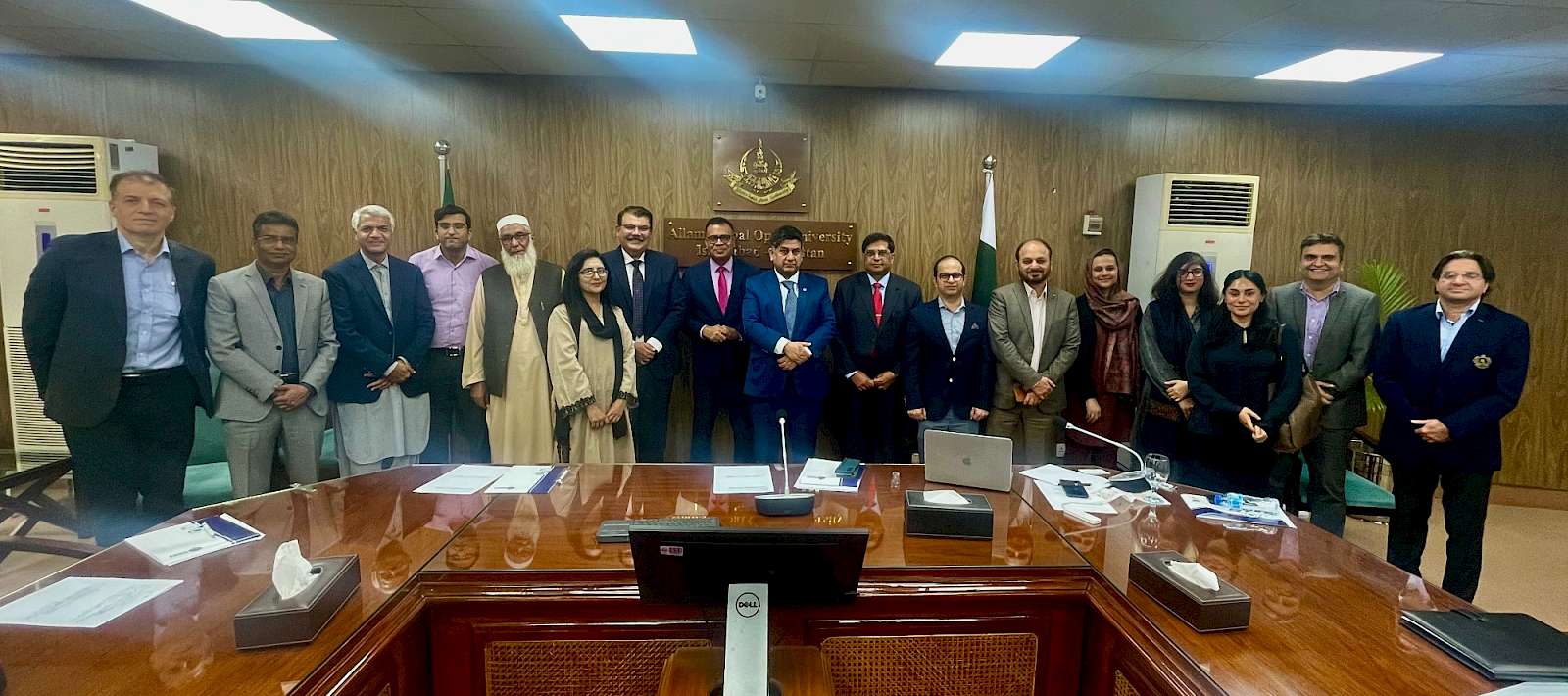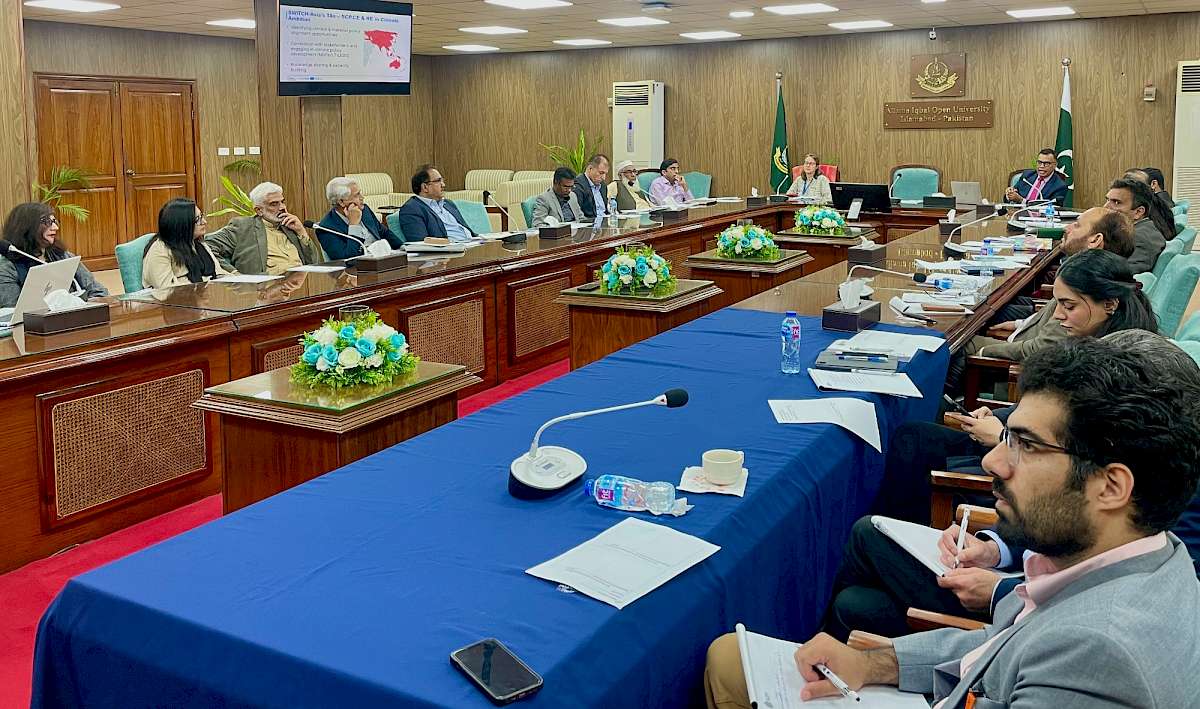
Islamabad, Pakistan – November 5, 2025
The EU SWITCH-Asia Programme, in collaboration with the Sustainable Development Policy Institute (SDPI) of Pakistan, organised a Roundtable on Circular Economy and Resource Efficiency as key enablers of Pakistan’s Long-Term Low Emission Development Strategies (LT-LEDS) and Nationally Determined Contributions (NDCs). This roundtable is part of the ongoing Technical Advisory on Integrating Sustainable Consumption and Production and Circular Economy aspects into the Third Generation of NDCs (NDC 3.0) and LT-LEDS in South Asia.
Linking Materials, Climate, and Policy
The event brought together around 25 experts and participants from government institutions, the private sector, academia, and international development partners. Their discussions focused on how Sustainable Consumption and Production (SCP) and Circular Economy (CE) measures can be leveraged to strengthen Pakistan’s climate ambition.


Findings from the International Resource Panel (IRP) and the Intergovernmental Panel on Climate Change (IPCC) reveal a fact of critical importance: the extraction and processing of material resources are responsible for over 60% of global greenhouse gas emissions. This demonstrates that effective climate action is impossible without making SCP and CE central components of climate policy.
Because material resources also play a key role in building climate resilience and adaptation, a holistic and integrated approach is needed. The year 2025, which marks the submission of updated Nationally Determined Contributions (NDCs) ahead of the 30th Conference of the Parties (COP30) to the UNFCCC, provides a timely opportunity to bridge the longstanding gap between climate and material policies. Doing so would ensure that future national commitments are grounded in resource efficiency, securing a more sustainable climate future.
The roundtable’s timing was particularly strategic, held just days before COP30. Its discussions underscored the urgency of embedding circular economy and resource efficiency at the heart of global climate dialogues, as COP30 will set the direction for climate policy and ambition for the next five to ten years.
Ms. Barbara Riksen, Head of the Section for Economic Cooperation and Rural Development at the European Union Delegation to Pakistan, welcomed participants on behalf of the Delegation. She highlighted that the European Green Deal has firmly recognised the circular economy as indispensable for both climate action and overall sustainable development.
Building on this principle, she congratulated the Government of Pakistan for launching its ambitious NDC 3.0, which covers many economic sectors and provides a framework for mainstreaming climate action. She concluded by inviting attendees to explore together the opportunities of material resource efficiency and the circular economy for strengthening Pakistan’s climate ambition.
Mr. Ranga Pallawala, Climate Change and Environment Policy Expert of the SWITCH-Asia Policy Support Component (PSC), delivered the background technical presentation. He highlighted the scientific aspects and global initiatives that integrate Sustainable Consumption and Production, and Circular Economy into climate policies as fundamental to solving the triple planetary crisis. He also shared practical regional examples of Sustainable Consumption and Production and Circular Economy integration into NDCs and discussed the potential of policy instruments for market transformation.
Mr. Arif Rahman, Pakistan Expert on Climate and Sustainable Consumption and Production for the SWITCH-Asia PSC, presented the key recommendations from the Whitepaper on the potentials of integrating Sustainable Consumption and Production Principles into Pakistan's NDCs. He noted that while NDC 3.0 serves as a good broader framework for the next 5-10 years, some targets and ambition require further analysis to understand how best to integrate material aspects into implementation strategies. He added: "SCP is not a side gig but the main event when it comes to measurable Climate Action".
Dr. Arif Goheer from the Global Change Impacts Studies Centre attached to the Ministry of Climate Change and Environmental Coordination (MoCC&EC) of Pakistan contributed to the discussion. He stated, “While Pakistan’s NDC 3.0 does not explicitly mention the material-climate linkage, Sustainable Consumption and Production, or Circular Economy, its importance is implicitly highlighted under many targets. We have the opportunity to integrate these concepts more effectively into NDC implementation strategies, investment plans, and the Long-Term Low Emissions Development Strategy (LT-LEDS) process. As an initial step, I suggest making it a core component of the industrial decarbonization section of the LT-LEDS, as market transformation is crucial at this stage.”
Usman Kirmani, Team Leader of the Catalytic Fund of Pakistan, mentioned during the discussions, “It is important to learn from other countries in the region on the linkage between material resources and climate. Regional collaboration is very important in addressing the complex issue of climate change. While learning from the examples from other countries Pakistan also can contribute with our own experiences”
In his concluding remarks, Mr. Saad Khan, Additional Secretary of the Ministry of Climate Change and Environmental Coordination (MoCC&EC) of Pakistan, highlighted the importance of stakeholder engagement and participation in climate action decision-making. “The circular economy is very important, but we still need wider and deeper discussions to integrate it effectively within the Pakistani context. I encourage more in-depth explorations of this nature”, he added. He further urged these matters must be taken up at the discussions during the upcoming COP30 meetings and the experiences must be shared among the other countries.
For more information contact:
Ranga Pallawala, Climate Change and Environment Policy Expert, SWITCH-Asia Policy Support Component
Learn more here.


